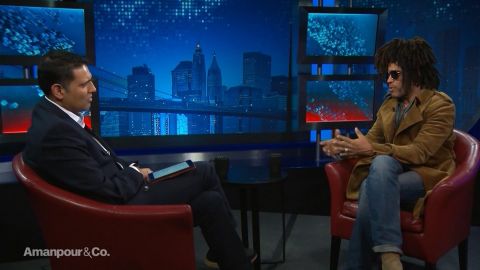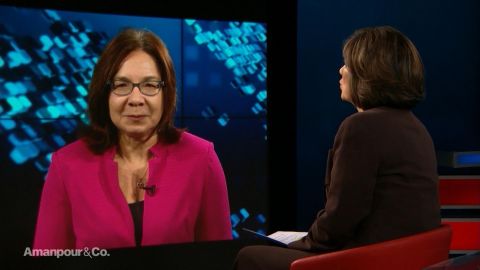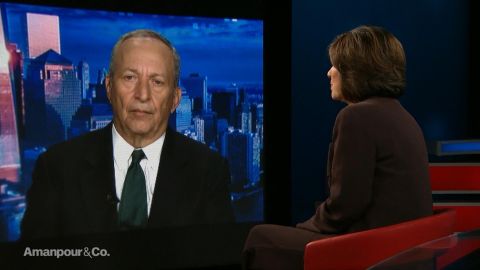Read Transcript EXPAND
CHRISTIANE AMANPOUR: And you’ve also said that a thermometer is neither liberal nor conservative. So, tell me how you are tackling this highly politicized, highly ideological battle over whether humans are responsible for this climate change.
KATHARINE HAYHOE: I have a conversation just about every day with someone who rejects the science of climate change. And when they do so, they typically throw up what I think of as sciency sounding myths. It’s just a natural cycle they say or, “You scientists are just making this up to line your pockets,” or sometimes they throw up religiousy sounding myths. If God’s in control, this could never happen or the earth is going to end anyways. But if we let people talk more than about 30 seconds, immediately the conversation will take a right turn into, “I don’t want a price on carbon. I’ve heard that fixing climate change will destroy the economy. I wouldn’t be able to drive my truck any more if we have limits on carbon.” Just about all of the objections that I have heard, the genuine objections to acting on climate have everything to do with solution aversion. The fact that we fear the solutions more than we fear the impacts. We think the solutions will destroy our way of life and lead to a much lower quality of life than we enjoy today, whereas we view the impacts as very distant and far off, they don’t really matter to us. So to address this, I have to do two things that are very uncomfortable for a scientist to do. The first thing is rather than engaging with people from the head as we often do with data and facts and charts and figures; I have to engage with people from the heart, sharing with them from my heart why I care. Why this matters to me and to people that I care about and love. And then the second thing I have to do is something that we scientist are not trained to do and that’s why we need everybody on board helping with this, we have to talk solutions. And so I love talking about examples of where companies like a solar panel manufacturer in San Antonio took in oil patch workers who lost their jobs when oil prices dropped and retrain them to do solar panel manufacturing. Or the fact that a Chinese company went into Wyoming and trained coal miners in Wyoming to do wind energy installations. We need to think to the future and people who work very hard, like coal miners, deserve the opportunity to continue to contribute to the new clean energy economy.
AMANPOUR: Much of the back lash, as you’ve just described, also includes sort of a faith based backlash. Can you explain to us how you explain to your faith based community that you can have faith and be a committed Christian and also being really rigorous atmospheric scientist as you are?
HAYHOE: So when people say, you know God’s in control so humans can’t affect the planet, I point them to Genesis One where it says that God gave us, humans, responsibility over every living thing on this planet.
About This Episode EXPAND
Christiane Amanpour speaks with Lawrence Summers about President Trump’s proposed all and the government shutdown; and Katharine Hayhoe about the numerical facts of climate change. Hari Sreenivasan continues his conversation with actor and musician Lenny Kravitz.
LEARN MORE


